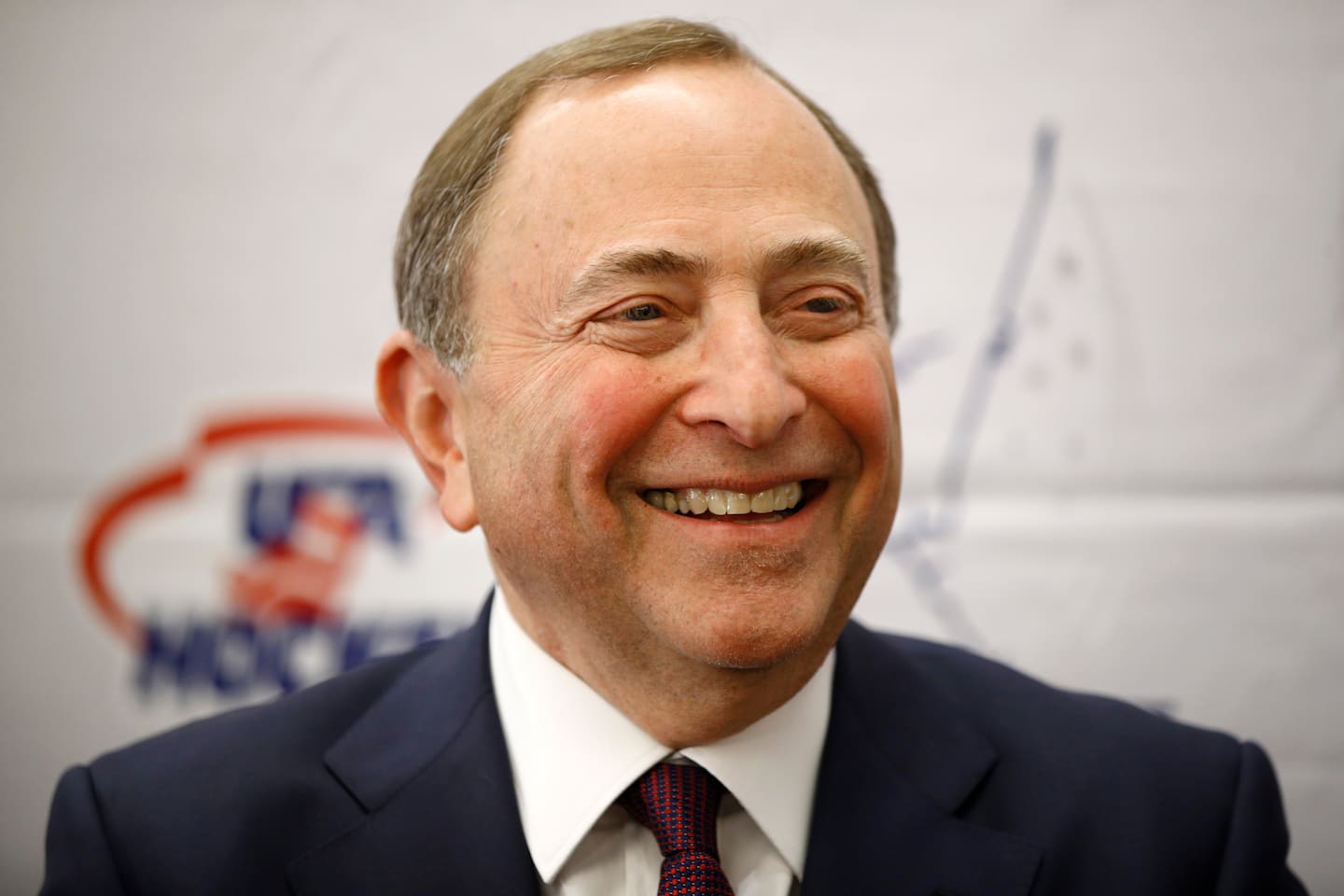Coronavirus issues cast shadow of uncertainty over start of NHL season

“I labored under the delusion that … we’d be able to take a breath,” NHL Commissioner Gary Bettman said Monday on a conference call with reporters. “When my plane landed back in the New York area the next day after the Stanley Cup was presented, the phone started ringing and we were back at it again.”
Planning for the league’s return was no easy task. It took lengthy negotiations between the NHL and the NHLPA that concluded in December as well as approval from Canadian health officials for teams to play games there. Because of travel restrictions between the United States and Canada, the league realigned its divisions for this season, and the schedule will consist exclusively of intradivisional play. There will be one division (North) made up solely of Canadian teams, plus three American divisions (East, West and Central).
“What’s aspirational is we get through the season, we have an on-ice terrific season, great playoffs, we present the Stanley Cup, and the world is back to normal for the ‘21-’22 season,” Bettman said. “Anything beyond that would be great.”
The plan is for all teams to play in their home arenas, rather than in a bubblelike environment as in Toronto and Edmonton for last year’s postseason. The only team without access to its home rink is the San Jose Sharks, who held training camp in Scottsdale, Ariz., because of restrictions on gatherings in California’s Santa Clara County. The Sharks will play their first eight games on the road.
Other speed bumps heading into the season include four teams undergoing brief shutdowns in training camp because of coronavirus concerns. The Dallas Stars took the biggest hit, with their practice facility shut down for four days after six players and two staff members returned positive coronavirus results Friday. The Stars resumed practice Tuesday, but their first three games have been postponed.
On Tuesday, the NHL announced that 27 players leaguewide tested positive during training camp, including 17 among the Stars. The league said most of the players are asymptomatic and all of them “are currently recovering without complication.”
NHL deputy commissioner Bill Daly said Monday that the league has no expectation of having widespread vaccination in the league during the season. Additionally, he said the league would not be “jumping the line” to secure those vaccines if that option surfaces later in the year.
Instead, the league is focused on its safety protocols. Players and other club personnel were tested daily during training camp and will continue to be for the first four weeks of the season. After that, the league will reevaluate to see whether clubs should test every other day.
The NHL is also dealing with financial issues. Bettman said, without providing financial details, that the league is set to lose billions by staging a shortened season largely without fans. Gate revenue generated at games accounts for roughly 50 percent of what the league brings in.
As of Tuesday, the Stars, Florida Panthers and Arizona Coyotes are the only teams that will start the season with fans in attendance, albeit a limited number. To offset that financial shortcoming, the league found other ways to bring in revenue, including selling naming rights to its divisions for the first time. Additionally, teams can sell ads on helmets. Multiple teams have agreements in place, including the Washington Capitals, who have Capital One branding on their helmets.
“Let me make something really clear: We’re coming back to play this season because we think it’s important for the game, because our fans and our players want us to, and it may give people — particularly those that are back in isolation or where there are curfews — a sense of normalcy and something to do,” Bettman said.
As the season progresses, coronavirus issues will be at the forefront of everything the NHL attempts. To help prepare teams and players for what’s ahead, there are 213 pages of health and safety protocols for them to follow.
The rules when teams are away from home will be one of the biggest changes. While on the road, players cannot “patronize or enter internal venues other than the designated hotel, the practice facility or the game arena,” the protocols note. Each city will have a hotel designated for visiting clubs, and players will not have roommates on the road.
Off-ice protocols include coaches being required to wear masks at all times — including on the bench — unless they are on the ice.
“It’ll probably be good for me,” Capitals Coach Peter Laviolette said of wearing a mask on the bench. “Nobody will see what’s coming out of my mouth, so my mother will be happy, I think.”
The risk associated with playing this season compared with the setup for last year’s postseason is clearly greater. How the league handles outbreaks and teams shutting down their facilities during the season has yet to be determined.
“We’re going to have to be in a position to understand and address situations as they occur,” Bettman said. “Having a series of just hard and fast rules in this environment I’m not sure is going to be — actually, I’m pretty sure it’s not going to be the best approach. I think for us, if we get confronted with a variety of situations that we wish hadn’t occurred, we want to be in the best situation at that time, not hypothetically, to deal with them.”






